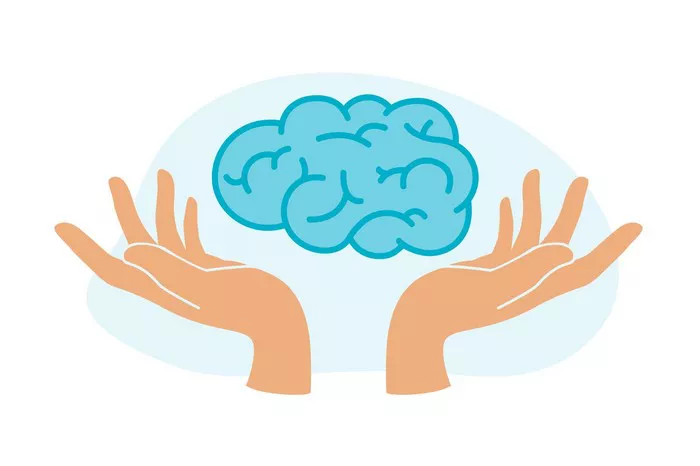In the intricate web of human behavior, lies often find their place. While occasional fibbing might be deemed harmless, there exist individuals whose relationship with truth is more complex. Pathological and compulsive lying are two such phenomena that delve into the realms of psychological intricacies, revealing layers of motivations, impacts, and potential treatments. To unravel the disparities between these two forms of dishonesty, it is imperative to delve into their definitions, causes, impacts, and avenues for support.
1. Definitions:
Pathological Lying: Pathological lying, also known as pseudologia fantastica or mythomania, refers to a persistent pattern of deceit that goes beyond social norms. Individuals who engage in pathological lying often fabricate elaborate stories with ease and conviction, even when confronted with evidence contradicting their claims. This behavior is not driven by external incentives but rather stems from an internal compulsion to manipulate, deceive, or portray oneself in a favorable light.
Compulsive Lying: Compulsive lying, on the other hand, is characterized by an uncontrollable urge to deceive, often stemming from underlying anxiety, low self-esteem, or a desire for approval. Unlike pathological liars, compulsive liars may not fabricate grandiose narratives but instead lie impulsively in response to perceived threats or insecurities. Their lies may serve as a coping mechanism to navigate social interactions or avoid confrontation.
Related Terms: Mythomania and pseudologia fantastica are often used interchangeably with pathological lying, describing the same pattern of habitual deceit. However, some distinctions exist, with mythomania emphasizing the pathological aspect and pseudologia fantastica focusing on the creation of fantastical narratives. While the terms may vary in usage, they all encapsulate the essence of compulsive deceit.
2. Causes and Motivations:
Pathological Lying Causes and Motivations: The roots of pathological lying often trace back to underlying personality disorders such as narcissistic personality disorder or antisocial personality disorder. These individuals may lie to manipulate others, inflate their self-image, or maintain a façade of superiority. Additionally, childhood trauma, neglect, or a history of abuse may contribute to the development of pathological lying as a coping mechanism to navigate turbulent environments.
Compulsive Lying Causes and Motivations: Compulsive lying typically arises from deep-seated insecurities, anxiety, or a fear of rejection. Individuals may fabricate stories to garner attention, avoid embarrassment, or alleviate feelings of inadequacy. The lies often serve as a protective shield, shielding them from perceived threats to their self-esteem or social standing.
3. Impacts and Consequences:
Impact on Relationships: Both pathological and compulsive lying can erode trust and strain relationships. Loved ones may become disillusioned or resentful upon discovering the extent of deceit, leading to fractured bonds and emotional distress. The inability to discern truth from fiction may create a sense of unease and instability, hindering meaningful connections.
Consequences in Various Aspects of Life: Beyond interpersonal relationships, lying behaviors can have far-reaching consequences in professional, legal, and social spheres. In professional settings, habitual lying may lead to loss of credibility, damaged reputations, or even legal repercussions if falsehoods result in tangible harm. Socially, individuals who consistently lie may find themselves isolated or ostracized, as trust forms the bedrock of healthy social interactions.
4. Treatment and Support:
Seeking Help: Recognizing the need for intervention is the first step towards addressing pathological or compulsive lying. Mental health professionals, such as psychologists or psychiatrists, can offer specialized assessments and therapeutic interventions tailored to the individual’s needs. Cognitive-behavioral therapy (CBT) and dialectical behavior therapy (DBT) are often effective in addressing underlying issues and modifying maladaptive behaviors.
Coping Mechanisms and Strategies: For individuals struggling with lying tendencies, cultivating self-awareness and practicing honesty can be transformative. Engaging in mindfulness practices, journaling, or seeking support from trusted confidants can help individuals navigate triggers and manage impulses. Developing healthy communication skills and assertiveness can also empower individuals to express themselves authentically without resorting to deceit.
Conclusion
In conclusion, while pathological and compulsive lying share commonalities in their deceptive nature, they diverge in their underlying motivations, impacts, and potential treatments. By fostering a deeper understanding of these phenomena and offering support avenues, we can foster empathy and facilitate healing for individuals grappling with the complexities of dishonesty. Through compassion and intervention, the journey towards authenticity and integrity can begin anew.
FAQs
What is a pathological liar?
A pathological liar is someone who habitually tells lies without any apparent motive or benefit. They often lie compulsively, even when there is no reason to do so. This behavior is typically rooted in deep-seated psychological issues rather than a desire to achieve personal gain or avoid consequences.
How do I know if I am a pathological or compulsive liar?
If you find yourself consistently telling lies, even when there’s no apparent reason to do so, and if lying has become a habitual pattern in your behavior, you may be exhibiting traits of a pathological liar. Seeking professional help from a therapist or counselor can provide clarity and guidance.
What is an example of a compulsive lie?
An example of a compulsive lie could be constantly exaggerating personal achievements or experiences, such as claiming to have accomplished something remarkable or experienced extraordinary events that never actually happened. This type of lie is often told without conscious thought or intention, driven by a compulsive need to impress others or gain attention.
Related topics:
- Cooling Down Anxiety: The Potential of Ice Baths
- The Relationship Between Pathological Lying & Bipolar Disorder
- The Relationship Between Gut Health & Mental Well-being


